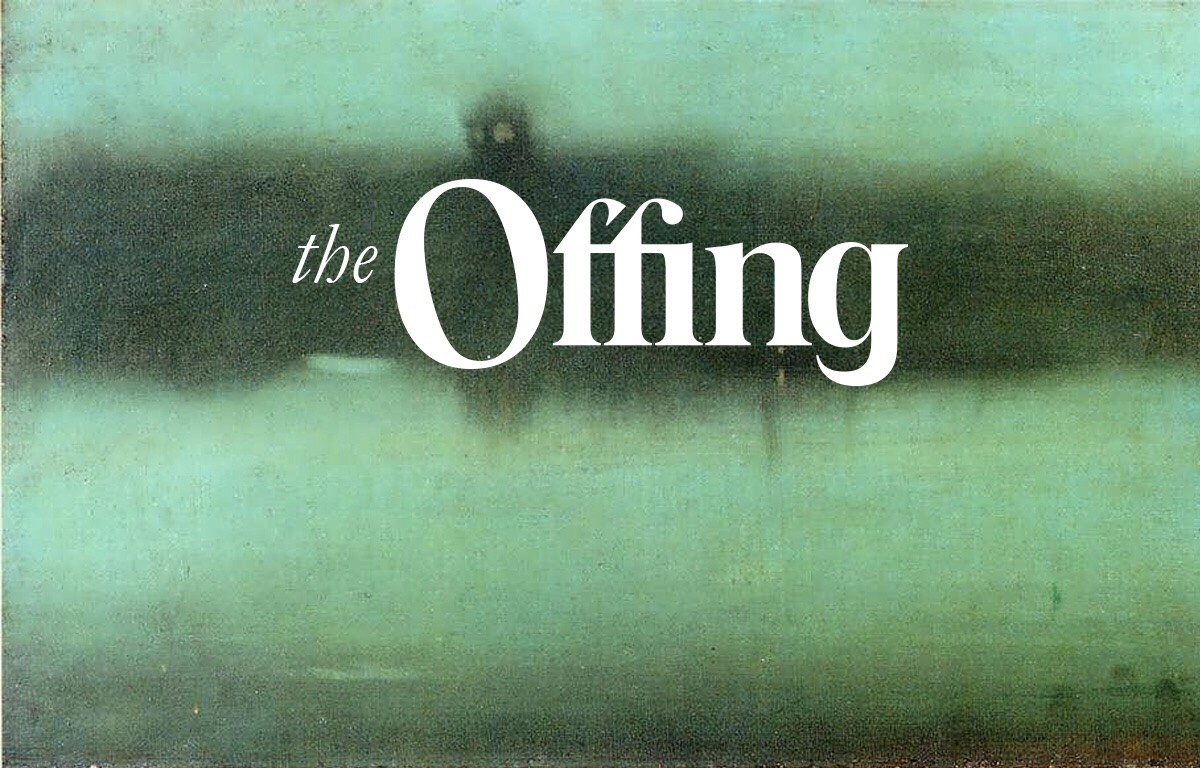The Los Angeles Review of Books is happy to announce a new channel, The Offing, an online literary magazine publishing work in all genres. The project launched last week at theoffingmag.com.
The Offing will publish risk-taking work by new, emerging, and established writers and artists — with an explicit commitment to publishing diverse voices. To learn more about the magazine, its origins and its goals, we asked the editors a few questions.
The following is a brief Q&A with The Offing editor-in-chief (and LARB Fiction editor) Darcy Cosper and the magazine’s executive editors, Airea D. Matthews and Michael D. Snediker.
***
LARB: Darcy, how did The Offing come about? And how did it become a channel of the Los Angeles Review of Books?
DARCY COSPER: The Offing came about as a confluence and culmination of so many things! But for practical purposes, let’s say it came about through my work with Swink, and with the Los Angeles Review of Books. I had the privilege and pleasure of editing the online edition of Swink — the literary magazine founded by Leelila Strogov — from 2004 through 2012, when the site quietly went dark because I didn’t have the time and resources to keep it going on my own. And I have the privilege and pleasure of working as an editor with the Review, which I’ve been doing since 2012 when my long-time friend and colleague, founding editor Matthew Specktor, allowed me to join him in the fiction section. Last spring, Review editor-in-chief Tom Lutz, who knew about my work with Swink, encouraged me to create a new literary magazine as a LARB channel — and who could refuse an invitation like that?
What I’d loved most about Swink’s online edition was its unconventional, idiosyncratic aesthetic, which had evolved over a number of years; I decided that the new magazine would begin aesthetically where Swink left off, and move even further into the territories of experimentation, hybridity, genre-confounding — and that like Swink it would include a range of new, emerging, and established writers. Questions of difference and equality had recently begun to preoccupy my thoughts, so I also committed to building an organization that would directly and explicitly engage with and address issues of access and representation, in the literary world and beyond.
With all these goals in mind, I reached out to my visionary, brilliant, beautiful friends and colleagues, Airea D. Matthews and Michael D. Snediker, to make it happen.
LARB: Airea, how did you first become involved with The Offing, and what do you see as the magazine’s role in today’s literary world — what sets The Offing apart?
AIREA D. MATTHEWS: I’ve always been fairly vocal and transparent on social media. When used intentionally, our social interweaving does work to present diverging (and interesting) viewpoints in real time. I’m fascinated with how people think about the world outside their doors and the ways in which beliefs take shape. To that end, I actually “met” Darcy through an online community of women in publishing and media. It seemed like high-tech kismet because of our shared interests and obsessions. I liked her thinking and writing—the way she advocated. She liked my thinking and writing—the way I agitated. We had private talks about collaborating, and she invited me to be involved with The Offing. I was intrigued by The Offing‘s commitment to be a conduit for literary conversations happening on the periphery. There is unfound art on the boundaries–marginalized risk takers who are working through experiment, through experience, through a lens of otherness. The Offing wants to be a home for those voices. We want to make sure that the work is reviewed, read and published with a particular sensitivity to aesthetic and experiential plurality. To that end, we’ve put together one of the most diverse editorial staffs in recent memory. The Offing is creating new gatekeepers and, hopefully, new standards.
LARB: Michael, same question. How did you first become involved with The Offing, and what are some of the magazine’s ambitions as it grows in its first year?
MICHAEL D. SNEDIKER: Darcy invited me to become involved with The Offing just weeks before the Ferguson grand jury decision, around the time that ISIS militants killed 322 members of the Albu Minr tribe. It felt impossible in the moment of these events not to want from myself and others a writing whose uncompromising aesthetic principles were coextensive with political engagement, outrage, and—on the horizon of both shared and unshareable anger and grief (in the offing)—something like courage if not hope. I’m grateful for Darcy’s vision, and inspired by my fellow editors. My hope for The Offing in this first year is that we will become a vantage—both safe haven in the trench, and vice versa—from which the power of ethical commitment is inseparable from the exigency of formal invention. My hope is that we will foster and inspire writing as various and surprising as the strong present tense of experience itself.


